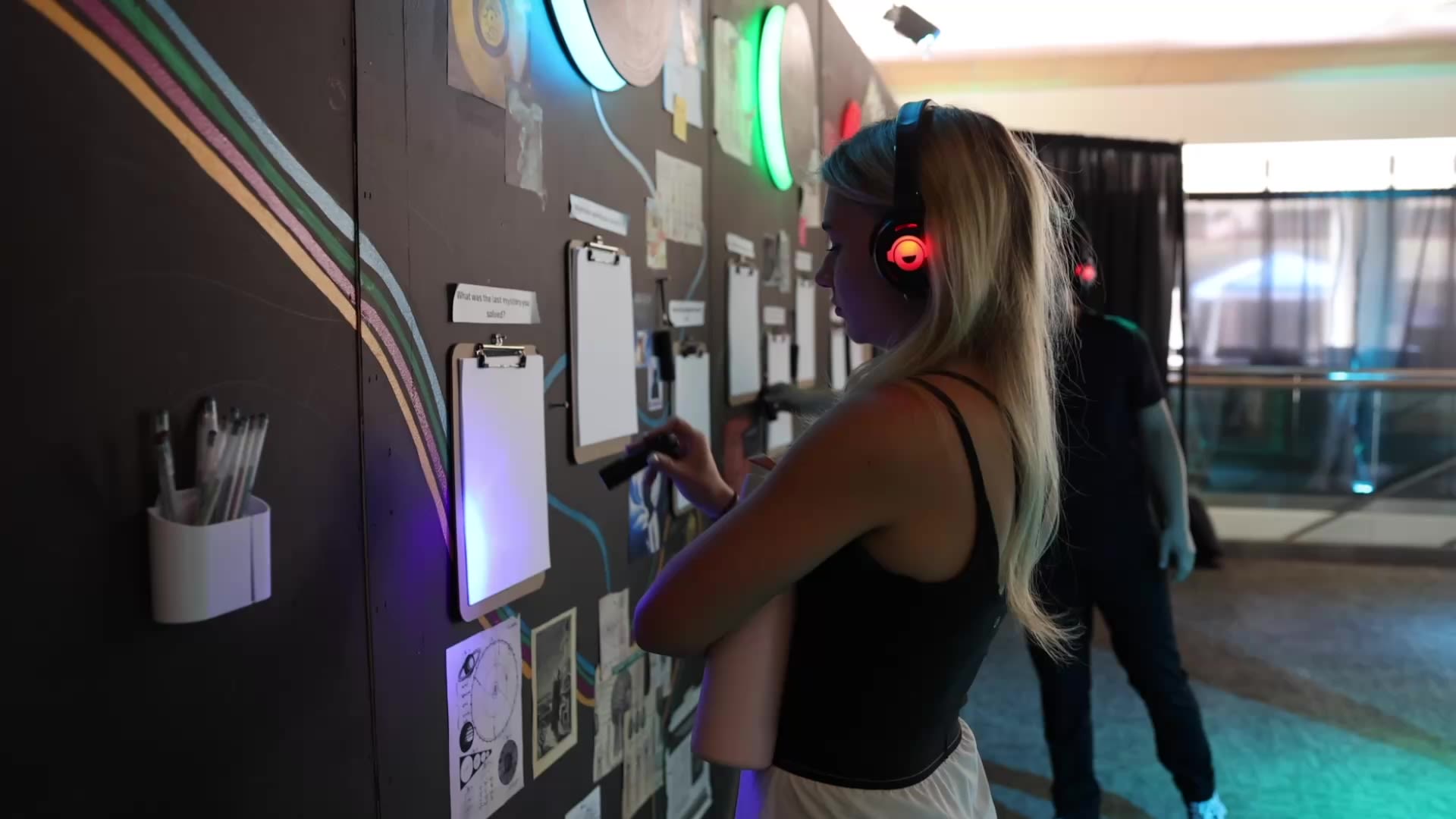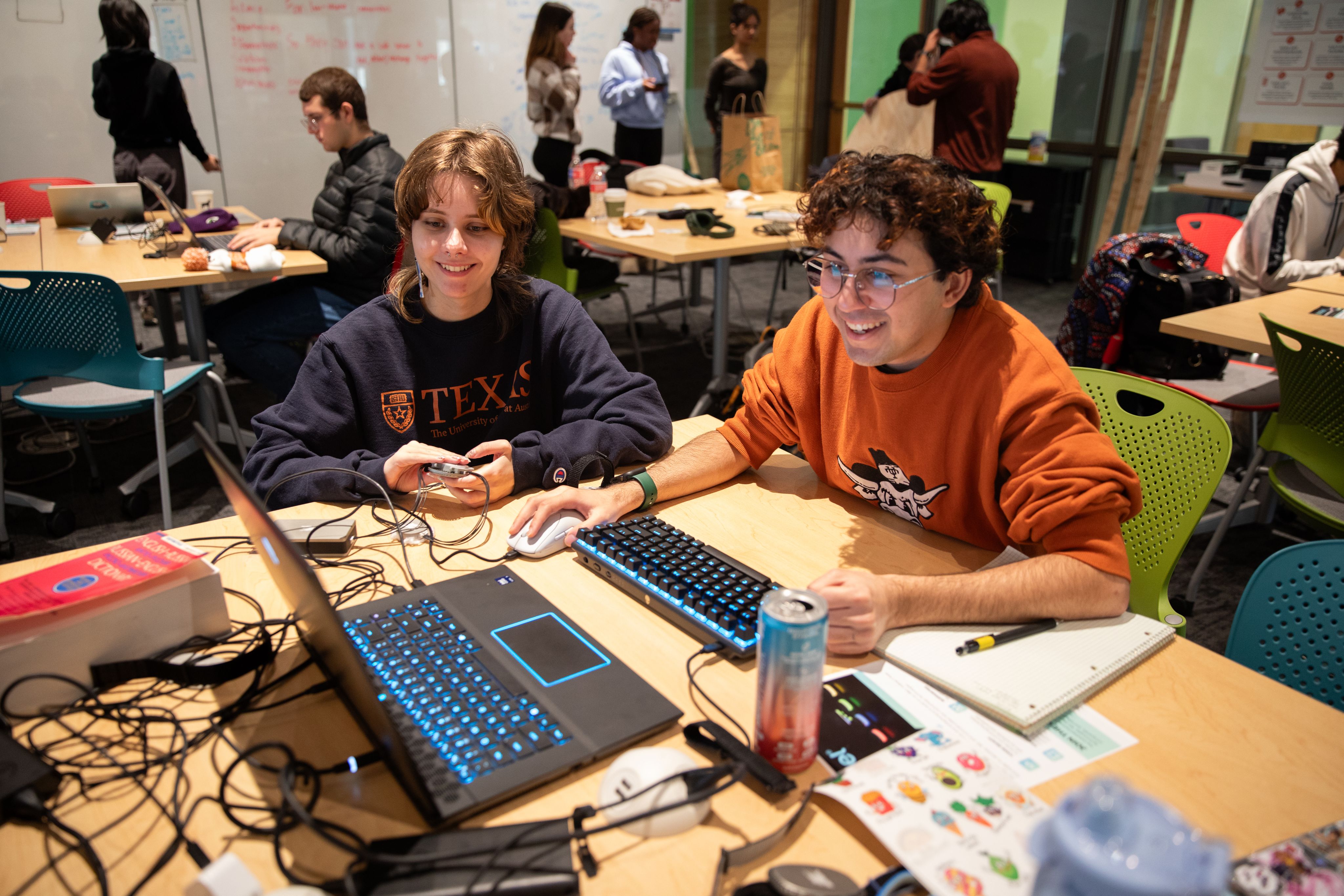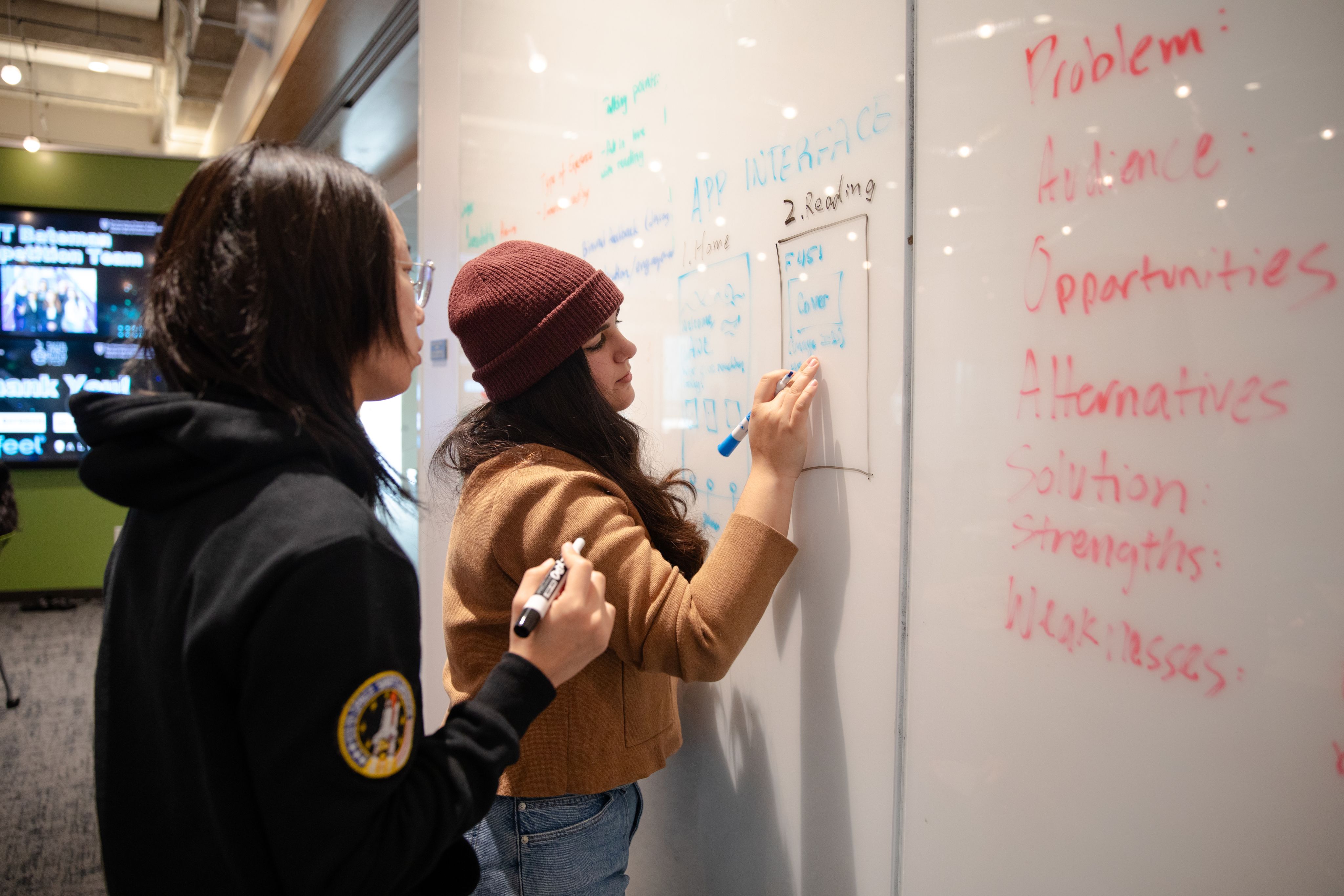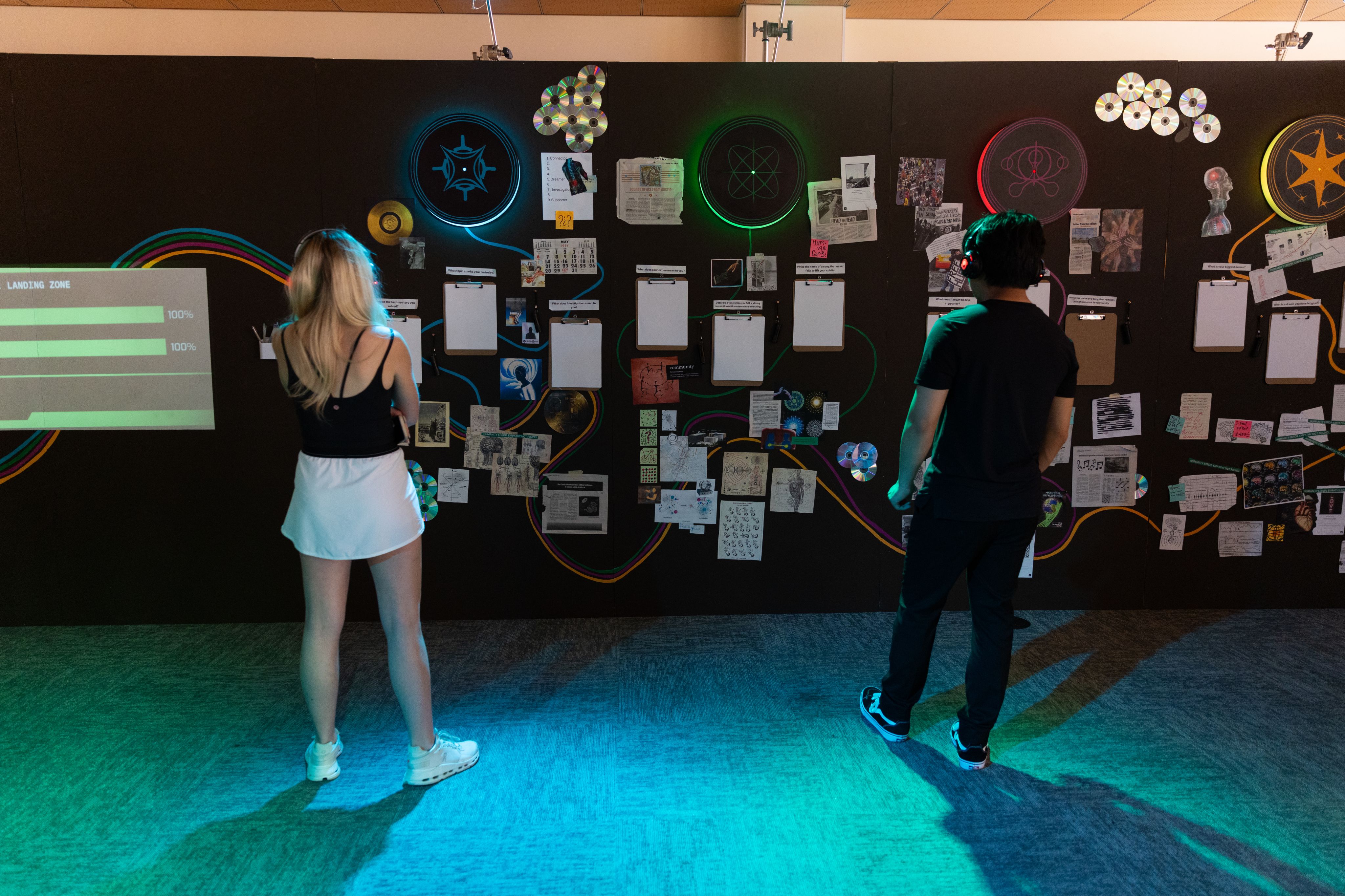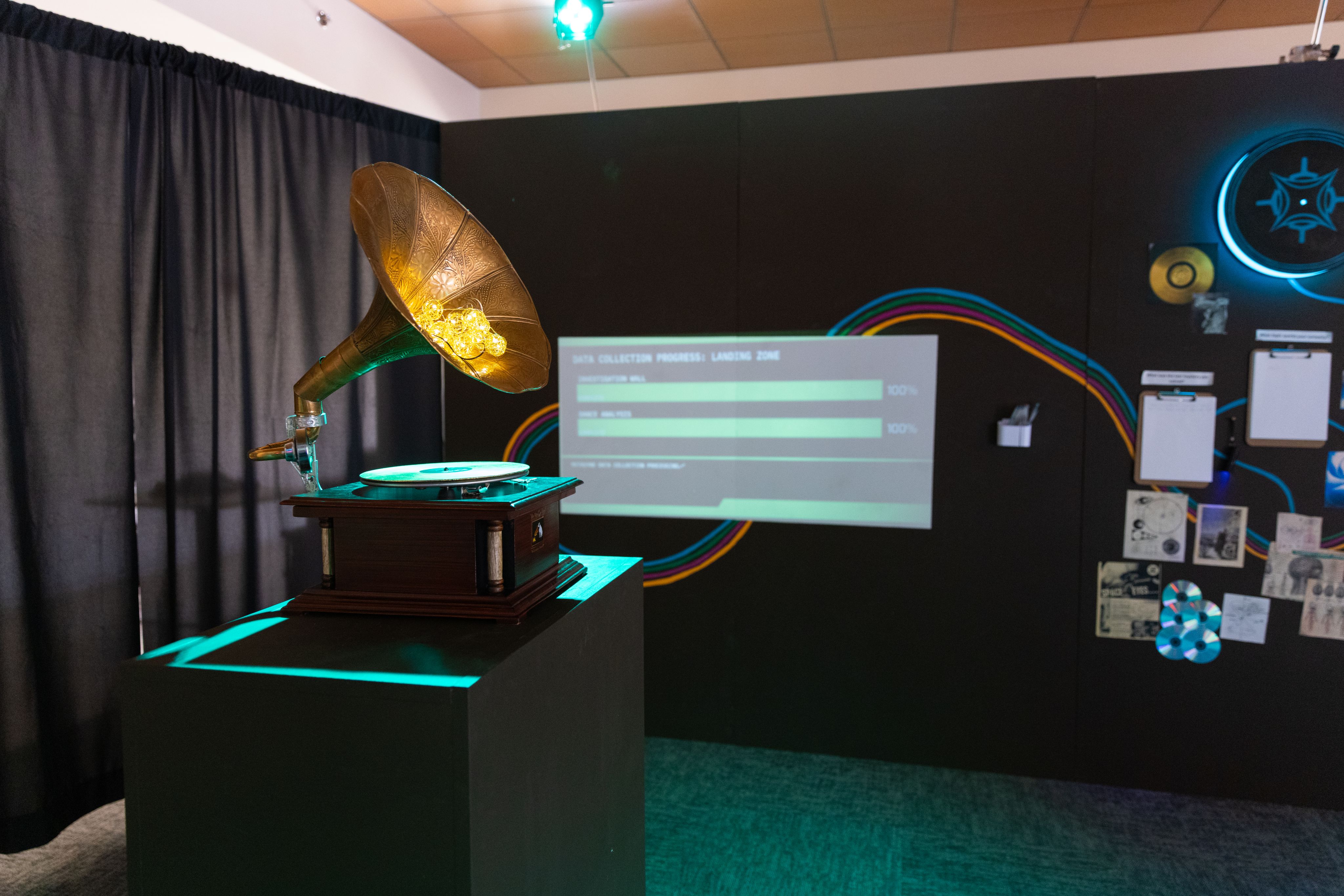Building new worlds
Building new worlds
Texas Immersive Institute helps students explore the future of storytelling and technology
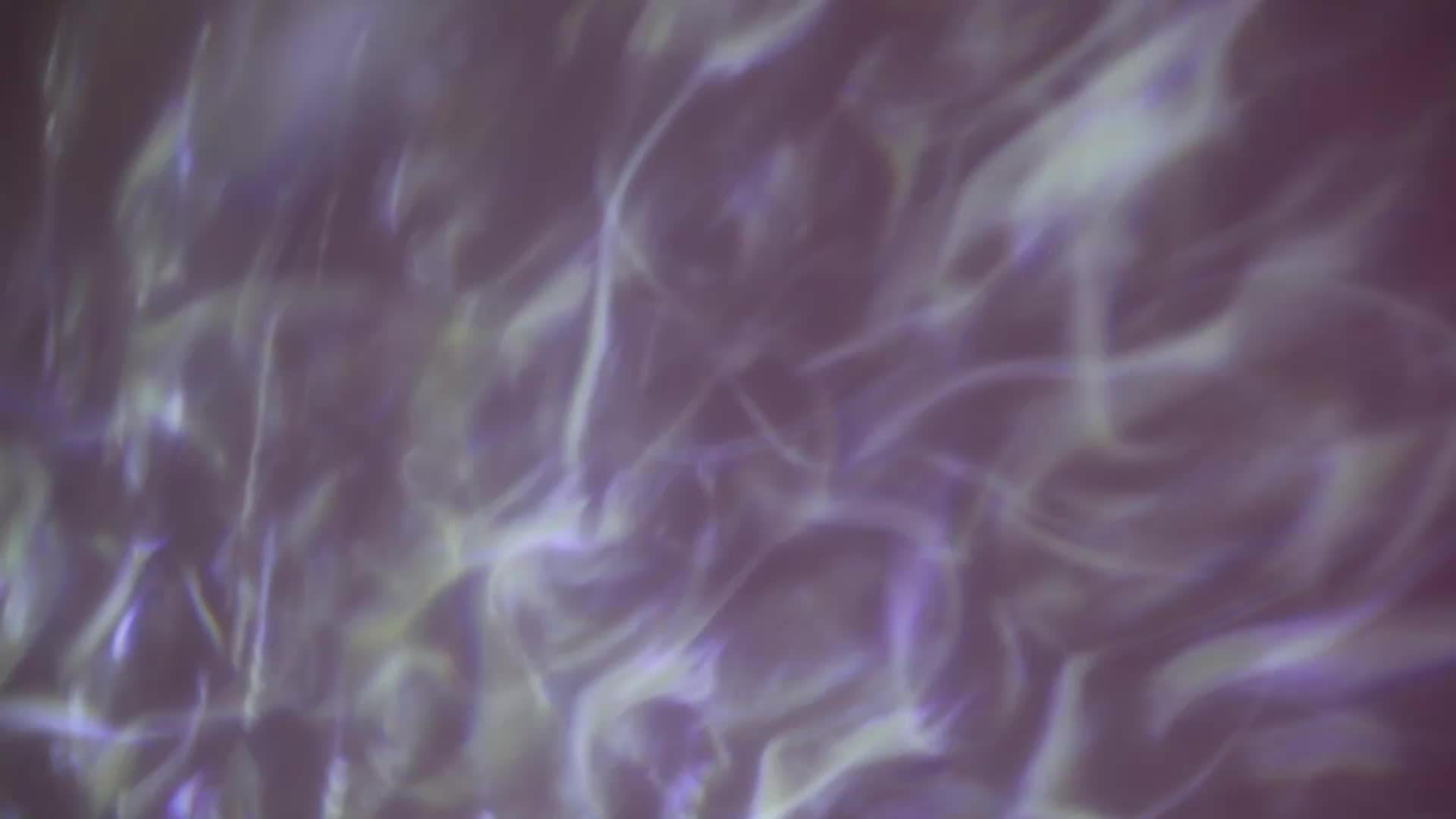
Erin Reilly is preparing students to be on the forefront of innovation. As a professor of practice in the Stan Richards School of Advertising & Public Relations and founding director of Texas Immersive Institute (TXI), Reilly brings her students to the cutting edge of technology and encourages them to work across new forms of media.
“Our mission is to create responsive, responsible and remarkable solutions through the power of immersive storytelling,” Reilly said. “We call it embodied media — that type of sensory environment is the focus of what Texas Immersive Institute focuses on.”
Technology, Reilly said, is changing. More people are looking for ways to keep their technology around them. One way is through virtual reality headsets. That’s where TXI comes in.
Students in the program, which is housed in Moody College’s Stan Richards School, explore live theater, experiential marketing and augmented reality to bring stories to life beyond a 2D environment. Alumni of the 5-year-old program are already establishing new immersive divisions in consulting firms and working with top experiential agencies.
“Texas Immersive is advertising, film, theater and creative technology all mixed into one discipline,” Reilly said.
Student explorers — the term applied to anyone involved in TXI — begin their journey in one of three introductory courses. “Audience Development and Engagement” focuses on the user experience, audience trends, motivation and designing for participation while “Immersive Media Studio” is like a sandbox that allows students to experiment with different technologies without having previous development experience. Finally, “Foundations of Immersive Media” explores the principles of immersive technology that apply to audience engagement, storytelling and environmental design.
All three courses are designed to give students a fundamental understanding of immersive experiences and the importance of balancing the audience experience with what technology can afford. Reilly said that any of these courses allow students to “test the waters” before registering for the more advanced “Experimental Storytelling” and “Immersive Experience.”
“Explorers get the building blocks in the foundational courses,” Reilly said. “They learn how to design a guest experience, design for participation and get to demo a lot of different environments, from physical to virtual world. In ‘Experimental Storytelling,’ they work with a real-world client and build prototypes. By the capstone, they’re building a full-on immersive experience that they sell tickets to and release to the public.”
Reilly compares the environment of her classes to a film production: a combination of different roles and disciplines working together to build something new. In previous semesters, groups of students created mixed-reality live shows about an AI overlord and the importance of mutual care, an exhibition exploring the transitional space the mind goes to during the last moments of consciousness, and an alternative reality version of present-day Austin discussing the surveillance state. Two of these projects were shortlisted for a BAFTA Student Award, and one was longlisted.
“We’re not in a lean back experience anymore. We’re in a lean forward experience, so active participation and creating agency in the experience allows you to not become a passive observer, but more of an active agent in the story.”
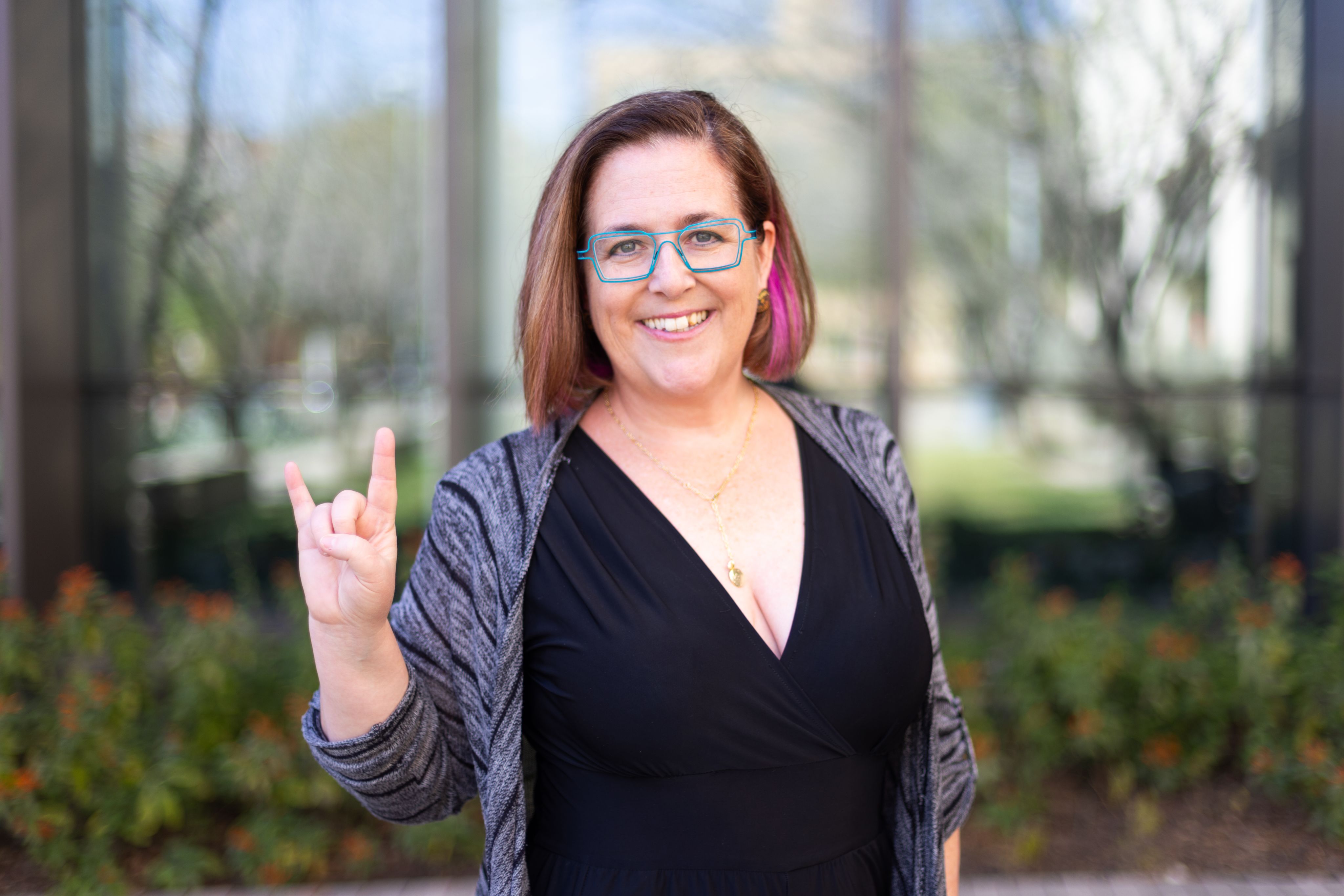
The immersive storytelling TXI specializes in allows for a deeper emotional connection with audience members by engaging all their senses. Projections and even physical sensations through haptic technology can create an intentional and intense bond to the narrative, characters and themes.
“We’re not in a lean back experience anymore,” Reilly said. “We’re in a lean forward experience, so active participation and creating agency in the experience allows you to not become a passive observer, but more of an active agent in the story.”
By designing these experiences, students are not only learning technological skills to help them in the workforce but also how to be adaptable.
“I feel like these courses really push students out of their comfort zone,” Reilly said. “We treat them like they’re not just in a classroom environment, but in a real work environment where they’re held accountable and have to be present and show initiative in taking control of their learning.”
Deep emotional connections with the audience
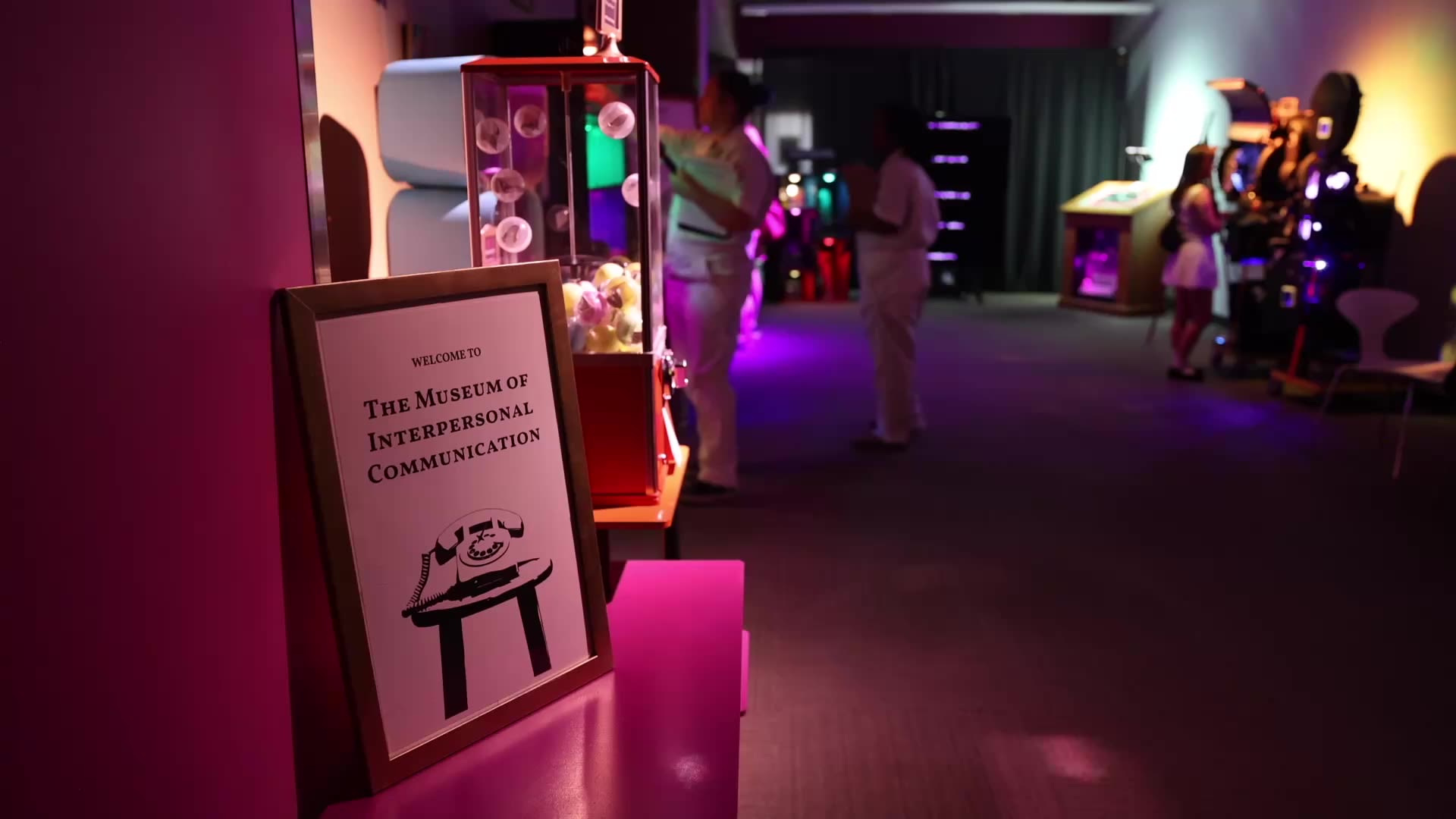
One of TXI’s most anticipated events is the annual Social Impact BuildFest. The weekend-long event encourages students and industry professionals to create innovative solutions for different social issues.
For this year’s BuildFest, Aoife Hopkins, a senior public relations major, teamed with TXI as part of the Bateman Case Study Competition for the Public Relations Student Society of America. Their goal was to find a tangible new technology to integrate libraries into people’s everyday lives to support EveryLibrary — a political action committee supporting education and public library access.
“As someone who comes from a very traditional writing and liberal arts background, I’ve always been a bit skeptical of technology and artificial intelligence,” Hopkins said. “But I was extremely pleasantly surprised with just how humane TXI made technology feel.”
After a briefing on the social issue by Hopkins’ team and the haptic technology by DataFeel, the event’s sponsor, the explorers hit the ground running. Teams worked throughout Friday and Saturday, building and testing prototypes with breaks to nap and order takeout. Beyond the nonstop movement, Hopkins was amazed by the amount of thought and care designers put into the human side and usability of this technology.
Hopkins described the experience and the weekend as a truly transformative experience.
“Texas Immersive is truly doing so much groundbreaking work,” Hopkins said. “You can trust Texas Immersive to lead you to where the future is and trust in the amount of passion the coordinators have.”
“Texas Immersive is truly doing so much groundbreaking work,” Hopkins said. “You can trust Texas Immersive to lead you to where the future is and trust in the amount of passion the coordinators have.”
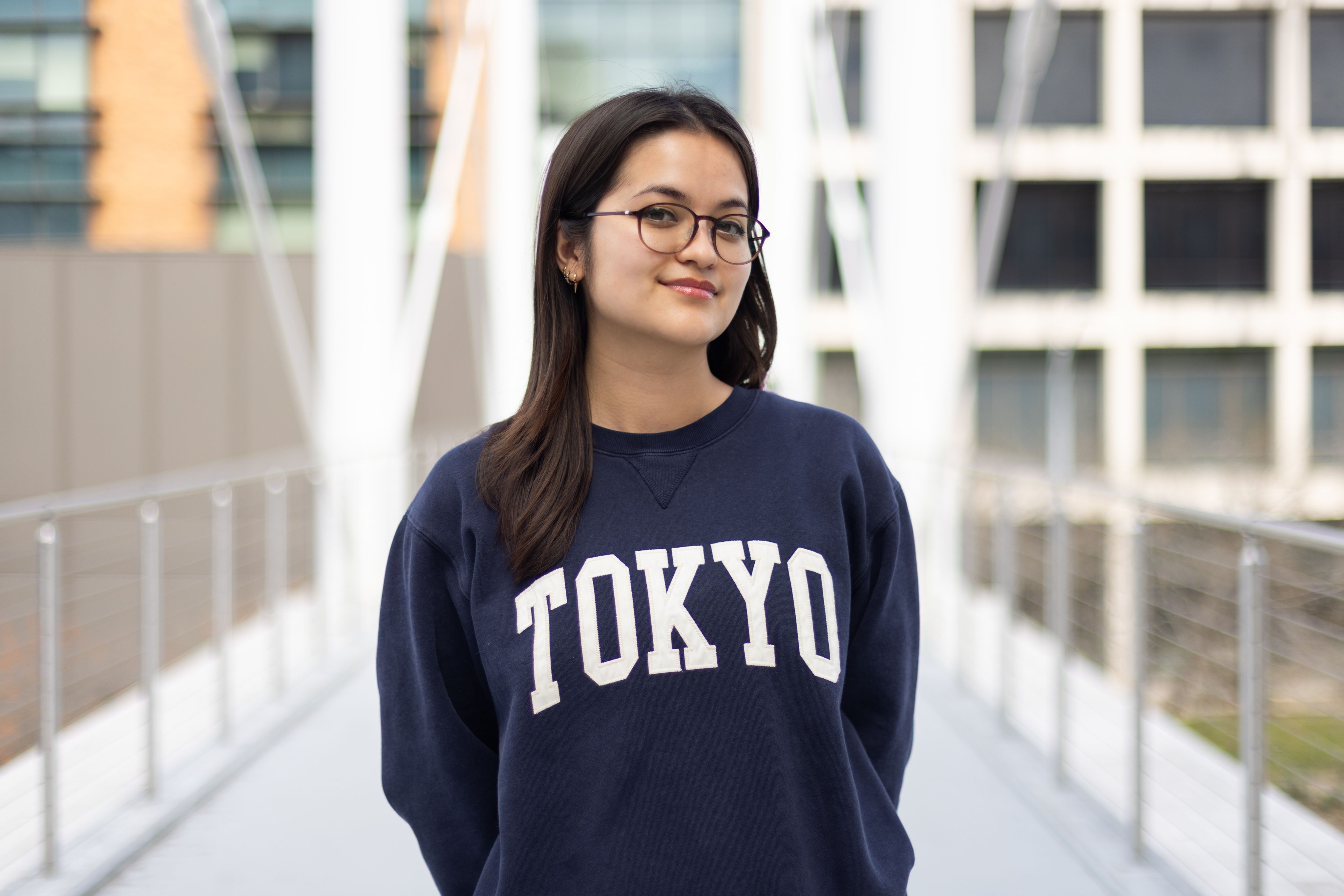
TXI has a lot on the horizon including the student-produced immersive experience “Pulse: Echoes of Humanity.” It will allow participants at Moody College to interact with light, sound, touch and temperature as they will explore the world of Metadyne Integration & Neural Development. The Metadynes, a rogue faction in a world devoid of emotion, want to restore their loss of humanity by researching participants who will go through four different testing zones to explore the human traits of connecting, investigating, supporting and dreaming through interactive experiences.
In the future, Reilly hopes TXI can continue to grow academically and through financial support. In the meantime, she plans to encourage other colleges to step into this immersive space and to keep creating a sense of awe and wonder for anyone who walks into the lab.
“I feel like we’re the storytelling innovators that are not afraid to pick up the next new tool and see how it can be applied to push the boundaries of what’s possible,” Reilly said.
“Pulse: Echoes of Humanity” is a student-produced immersive experience. Photos by Cambpell Williams
“Pulse: Echoes of Humanity” is a student-produced immersive experience. Photos by Cambpell Williams
TXI is pushing the boundaries of what is possible
